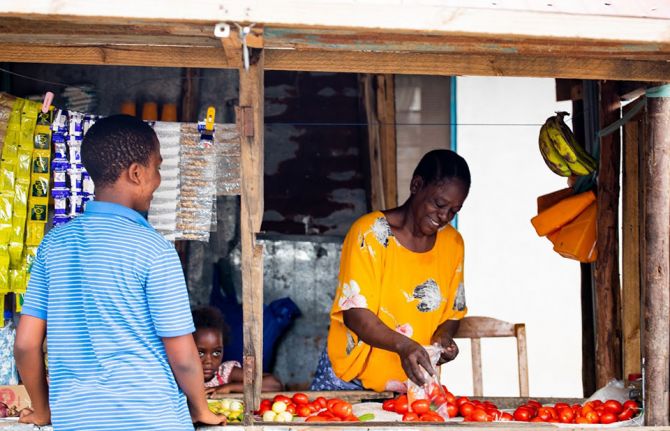

Feature Story
Strengthening national social protection systems
08 June 2021
08 June 2021 08 June 2021Many factors in society, including poverty, stigma, discrimination and persistent gender and socioeconomic inequalities, influence the health of individuals and communities, the participants heard at a side event at the United Nations High-Level Meeting on AIDS, being held in New York and online from 8 to 10 June.
At the event, Strengthening national social protection systems to adequately include people living with, at risk of, or affected by HIV to fast-track ending AIDS, speakers pointed out that it is at the intersections of multiple inequalities that the most vulnerable people lie. Compounding vulnerabilities hit the most marginalized and left behind people, and COVID-19 has brought those inequalities to the forefront.
The event highlighted promising country experiences. It showcased innovative approaches in enhancing access to social protection by people living with, at risk of and affected by HIV and brought together high-level representatives of governments, civil society, donors and academia to accelerate joint programming of HIV and social protection programmes to respond to COVID-19 and end AIDS by 2030.
The new global AIDS strategy aims to reduce the inequalities that drive the AIDS epidemic and acknowledges social protection’s central role in that. Social protection has the power to address the social and economic drivers of the HIV epidemic and to break down the barriers that people face in accessing HIV services. Social protection comprises public and private action to reduce risk, poverty and inequality, such as social safety nets, social security and labour market policies. It includes education, nutrition, housing, health and other social services.
Quotes
“Social protection systems are leaving behind people living with HIV; key populations are further left behind. This situation is completely unacceptable and is preventable. The UNAIDS Joint Programme knows how to reach people living with HIV and key populations with social protection services, including cash transfers.”
“The HIV response must focus on supporting the whole person and not only treating the patient. Social protection’s role in the global AIDS response needs to be given the same level of importance and relevance as testing and treatment.”
“Widespread state-sponsored homophobia and transphobia is a major obstacle for the LGBTQ community to access social protection services.”
“The Global Fund’s funding focuses on social protection going beyond cash or social transfers, promotes economic empowerment for key and vulnerable populations and addresses stigma and discrimination in accessing social health insurance.”



